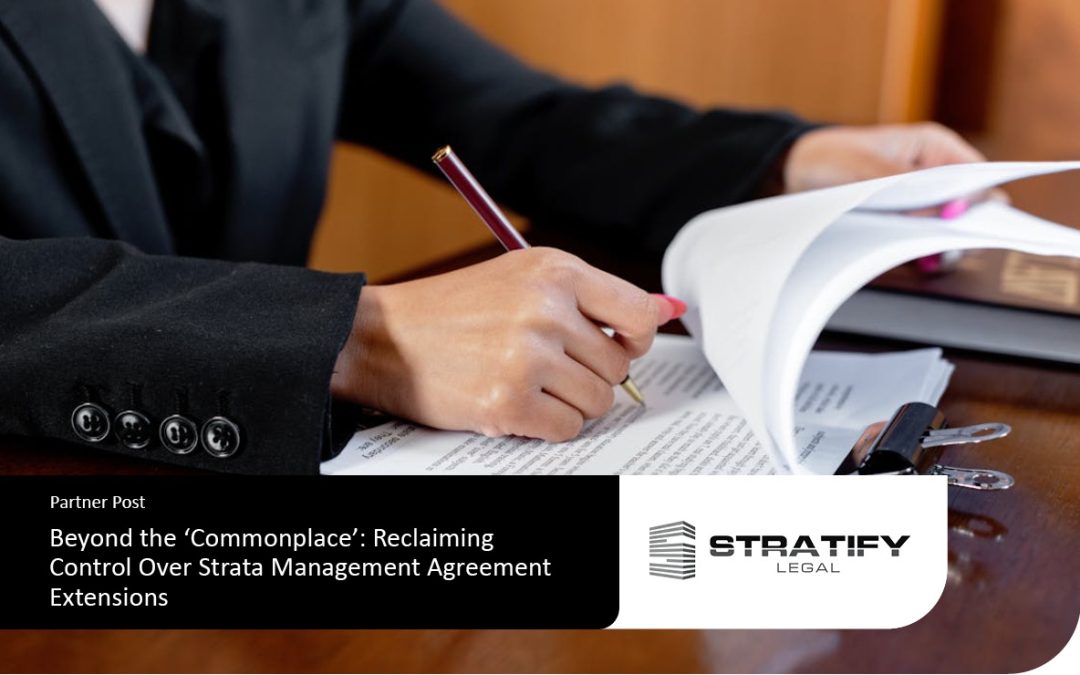The body corporate has no obligation whatsoever to agree to amend a caretaking or letting agreement, ever.
But don’t forget the democratic nature of bodies corporate when it comes to decision-making. It only requires an ordinary resolution of the body corporate in a general meeting to approve an amendment to the agreements. So, in practical terms, it takes more yes-votes than no-votes to make the building manager’s dreams come true.
For whatever reason, the strata industry appears to have succumbed to the notion that topping-up the term of caretaking and letting agreements is commonplace and inconsequential. That seems an odd position to adopt. In effect, the body corporate is extending its contractual obligations for up to five additional years (the commencement of which might be up to twenty years into the future) without knowing who the building manager will be at that time (it’s very unlikely to be the current one), without considering whether the duties will remain relevant at that time and by committing the body corporate to pay the building manager at rates ordinarily increasing at least by CPI. I am aware of plenty of bodies corporate who have rued their past decisions to vary the terms of the caretaking and letting agreements without properly considering the long-term consequences.
There are some statutory restrictions that apply to changes to caretaking and letting agreements, for example:
- the following changes may only be considered once in each financial year of the body corporate:
- a motion to change the remuneration payable under a caretaking agreement
- a motion to top-up the term of an agreement
- where a proposed change seeks to top-up the term of an agreement:
- the maximum allowable top-up is five years
- the maximum total remaining term of the agreements is 25 years for schemes regulated under the Accommodation Module and 10 years for schemes regulated under the Standard Module
- the body corporate must not seek or accept the payment of an amount or the conferral of a benefit in exchange for the top-up
- the motion is required to be accompanied by a BCCM Form 20 and decided by ordinary resolution by secret ballot
Don’t forget the committee can determine a particular motion for consideration at a general meeting be decided by secret ballot. There are often good reasons for a motion submitted by a building manager to be decided by secret ballot (to enable owners who use the building manager’s services to vote freely on a motion without scrutiny from the building manager, or anyone else).
When your building manager comes to you with a dream, you can either sit idly by (and ponder this quote from Mark Twain – Twenty years from now you will be more disappointed by the things you didn’t do than by the ones you did do)or you can use the building manager’s request as an opportunity to make the body corporate’s dreams come true too. If the building manager’s dream is to top-up the agreements, why not future-proof them by including provisions that enable you to have an independent expert review the duties every five years to ensure they are relevant and specific to your scheme into the future? If the building manager’s dream is to separate the management rights from the management lot, why not introduce new duties that require the building manager to be onsite at specific times and to live within a specific distance from the scheme to minimise the impact of the change from onsite to offsite management? Your dreams needn’t be related at all to the building manager’s dreams – you might just want to clarify some of the duties that are currently ambiguous in the agreement – now’s your chance!
If your respective dreams don’t align and middle ground is unreachable, then the matter will be decided by the masses at a general meeting. There’s nothing preventing the building manager or the committee from lobbying owners for their support. There’s also nothing preventing the committee from submitting its own motion as an alternative to the building manager’s motion, to give itself a fighting chance of achieving its dreams. However, if the committee’s version of the motion is approved at the general meeting and the building manager’s version isn’t, the outcome will be futile unless the building manager comes to the party… because it takes two, baby.
As for costs, there is no statutory obligation for the building manager to pay the body corporate’s costs when it requests a variation to the agreements. There is a commercial expectation the building manager will pay the body corporate’s costs, since it is usually the building manager who stands to benefit from the change, but, ultimately, costs will be a matter for negotiation (like dinner on a first date).
The next time you tango with the building manager, remember it’s your choice to remove the thorns from the red rose before clenching it in your teeth.
